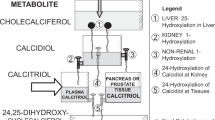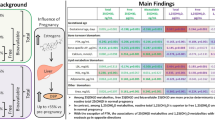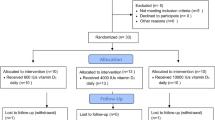Abstract
VITAMIN D is hydroxylated in the liver to 25-hydroxychole-calciferol (25-HCC)1, and this relatively inactive metabolite is further hydroxylated in the kidney to 1,25-dihydroxychole-calciferol (1,25-DHCC)2 (Fig. 1), the most active form, or to 24,25-dihydroxycholecalciferol (24,25-DHCC)3, a less active metabolite. The proportion formed of these metabolites is markedly influenced by diet4–5, but there is dispute about how this is achieved. One theory h that this involves parathyroid hormone and that this is the essential trophic factor which regulates the production of 1,25-DHCC6. There is strong evidence against this view7, however, and recent studies have cast further doubt: thyroparathyroidectomized rats can increase production of 1,25-DHCC under appropriate dietary stimulus8.
This is a preview of subscription content, access via your institution
Access options
Subscribe to this journal
Receive 51 print issues and online access
$199.00 per year
only $3.90 per issue
Buy this article
- Purchase on Springer Link
- Instant access to full article PDF
Prices may be subject to local taxes which are calculated during checkout
Similar content being viewed by others
References
Blunt, J. W., DeLuca, H. F., and Schnoes, H. F., Biochemistry, 7, 3317 (1968).
Fraser, D. R., and Kodicek, E., Nature, 228, 764 (1970).
Holick, M. F., Schnoes, H. F., DeLuca, H. F., Gray, R. W., Boyle, I. T., and Suda, T., Biochemistry, 11, 4251 (1972).
Boyle, I. T., Gray, R. W., and DeLuca, H. F., Proc. natn. Acad. Sci. U.S.A., 68, 2131 (1971).
Galante, L., MacAuley, S., Colston, K., and MacIntyre, I., Lancet, i, 985 (1972).
DeLuca, H. F., New Engl. J. Med., 287, 250 (1972).
Lancet i, 1000 (1972).
Larkins, R. G., MacAuley, S. J., Colston, K. W., Evans, I. M. A., Galante, L., and MacIntyre, I., Lancet (in the press).
Fraser, D. R., and Kodicek, E., Nature new Biol., 241, 163 (1973).
Colston, K. W., Evans, I. M. A., Galante, L., MacIntyre, I., and Moss, D. W., Biochem. J., 134, 817 (1973).
Galante, L., Colston, K., and MacIntyre, I., Clin. Sci., 44, 3p (1973).
Matthews, J. L., Martin, J. H., Arsenis, C., Eisenstein, R., and Kuettner, K., in Cellular Mechanisms for Calcium Transfer and Homeostasis (edit. by Nichols, jun., G., and Wasserman, R. H.), 239 (Academic Press, New York, 1971).
Tanaka, Y., and DeLuca, H. F., Arch. Biochem. Biophys., 154, 566 (1973).
Rasmussen, H., Clin. Endocr. Metab., 1, 3 (1972).
Gudmundsson, T. V., MacIntyre, I., and Soliman, H. A., Proc. R. Soc., B, 164, 460 (1966).
Galante, L., Colston, K. W., MacAuley, S. J., and MacIntyre, I., Nature, 238, 271 (1972).
Nature, 243, 436 (1973).
Author information
Authors and Affiliations
Rights and permissions
About this article
Cite this article
GALANTE, L., COLSTON, K., EVANS, I. et al. The Regulation of Vitamin D Metabolism. Nature 244, 438–440 (1973). https://doi.org/10.1038/244438a0
Received:
Issue Date:
DOI: https://doi.org/10.1038/244438a0
This article is cited by
-
Lack of influence of 24,25-dihydroxyvitamin D3 on parathyroid hormone secretion from normal or hyperplastic glands
Calcified Tissue International (1983)
-
Serum 1,25-dihydroxyvitamin D levels in subjects with X-linked hypophosphatemic rickets and osteomalacia
Calcified Tissue International (1982)
-
The regulation of vitamin D metabolism
Calcified Tissue Research (1975)
-
The metabolism of labeled parathyroid hormone
Calcified Tissue Research (1975)
Comments
By submitting a comment you agree to abide by our Terms and Community Guidelines. If you find something abusive or that does not comply with our terms or guidelines please flag it as inappropriate.



